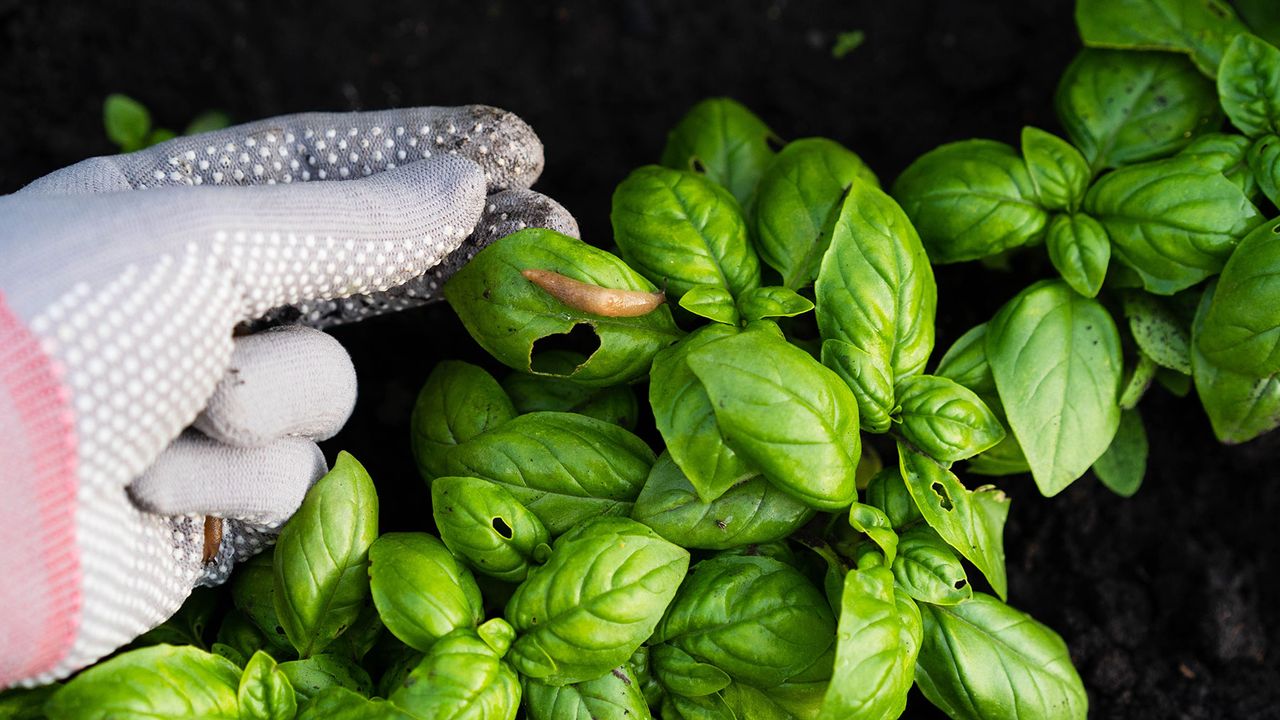Lifestyle
Five Eco-Friendly Ways to Keep Slugs Out of Your Garden

Slugs can wreak havoc on gardens, particularly in spring, when warm and damp conditions create an ideal environment for these pests. They can quickly destroy young seedlings, lettuce heads, and other tender plants, leaving behind unsightly slime trails. While traditional slug control methods such as beer traps, copper tape, and salt may be effective, they often harm beneficial wildlife and disrupt the garden ecosystem. Fortunately, there are five eco-friendly alternatives that utilize common household items to deter slugs without causing them harm.
Creating Physical Barriers
One of the simplest methods to keep slugs at bay involves creating physical barriers. Using crushed eggshells, gardeners can line their garden borders or surround vulnerable plants. The sharp edges of eggshells make it uncomfortable for slugs to cross, effectively deterring them from reaching the plants. It is advisable to save eggshells from cooking and crush them into larger fragments rather than fine powder for maximum effectiveness. To maintain this barrier, replace the eggshells every few weeks or after heavy rainfall.
Another effective tactic is to spread gravel or horticultural sand around vulnerable plants. This creates an uneven surface that slugs find challenging to traverse. Gravel paths not only deter slugs but also encourage them to seek shelter under hedges instead of venturing onto gravel surfaces. For enhanced protection, gardeners can form protective rings of horticultural grit around young or tender plants.
Natural Deterrents
Using used coffee grounds can also help prevent slug infestations. The texture combined with the caffeine content in coffee grounds serves as a natural barrier that slugs avoid. Collecting coffee grounds from personal use or local cafés provides a sustainable resource for gardeners. A ring of coffee grounds, about one to two inches wide, can be applied around vulnerable plants, allowing the grounds to decompose and enrich the soil. It is essential to refresh this barrier after heavy rains to ensure its continued effectiveness.
An unconventional yet effective method involves placing hair around plants. Hair from personal grooming or pet bedding can deter slugs due to its texture and scent. Forming a ring of hair around individual plants protects them from slug activity. Although hair decomposes slowly, it will require occasional replenishment to maintain its efficacy.
Finally, incorporating aromatic herbs and flowers into the garden can provide a natural defense against slugs. Plants such as alliums, mint, chives, garlic, and fennel emit strong scents that slugs find unappealing. By strategically positioning these slug-repelling varieties alongside plants that attract slugs, gardeners can create a protective barrier. This approach not only enhances the garden’s aesthetic appeal but also provides ongoing protection, as perennial aromatic plants return each season.
These eco-friendly methods offer gardeners effective solutions for maintaining a healthy garden without harming slugs or other wildlife. By utilizing everyday items and embracing natural deterrents, individuals can protect their plants while fostering a balanced ecosystem.
-

 Science2 months ago
Science2 months agoInventor Achieves Breakthrough with 2 Billion FPS Laser Video
-

 Health2 months ago
Health2 months agoCommunity Unites for 7th Annual Into the Light Walk for Mental Health
-

 Top Stories2 months ago
Top Stories2 months agoCharlie Sheen’s New Romance: ‘Glowing’ with Younger Partner
-

 Entertainment2 months ago
Entertainment2 months agoDua Lipa Aces GCSE Spanish, Sparks Super Bowl Buzz with Fans
-

 Health2 months ago
Health2 months agoCurium Group, PeptiDream, and PDRadiopharma Launch Key Cancer Trial
-

 Top Stories2 months ago
Top Stories2 months agoFormer Mozilla CMO Launches AI-Driven Cannabis Cocktail Brand Fast
-

 Entertainment2 months ago
Entertainment2 months agoMother Fights to Reunite with Children After Kidnapping in New Drama
-

 World2 months ago
World2 months agoIsrael Reopens Rafah Crossing After Hostage Remains Returned
-

 World2 months ago
World2 months agoR&B Icon D’Angelo Dies at 51, Leaving Lasting Legacy
-

 Business2 months ago
Business2 months agoTyler Technologies Set to Reveal Q3 Earnings on October 22
-

 Health2 months ago
Health2 months agoYouTube Launches New Mental Health Tools for Teen Users
-

 Health2 months ago
Health2 months agoNorth Carolina’s Biotech Boom: Billions in New Investments









